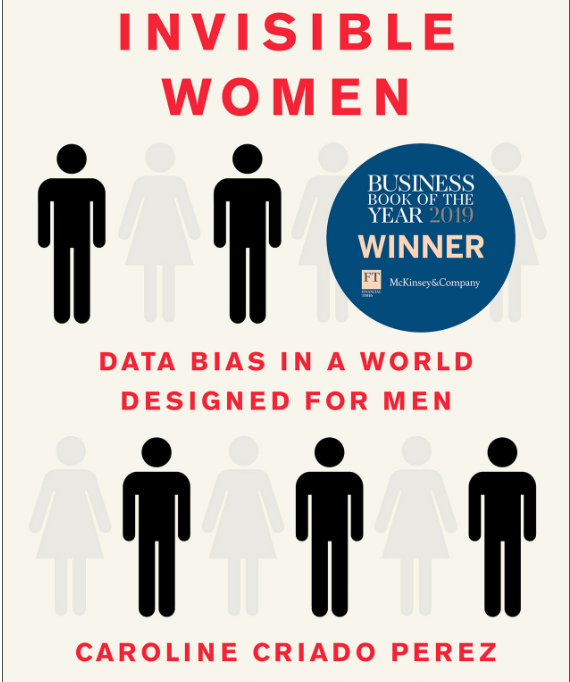Invisible Women: Data Bias in a World Designed for Men by Caroline Criado Perez
Published in 2019, Invisible Women: Data Bias in a World Designed for Men by Caroline Criado Perez tells the story of how women have been underrepresented, or outright missing, from studies and data as far back as data collecting goes. The author's premise is that all of humanity suffers from an inherent yet unintentional bias against women due to this lack of data.
There were some eye-opening parts to this book. The data and studies are well documented throughout, which helps to prove the author's hypotheses and points. Using that data, Perez shares detailed explanations of why the lack of data on women affects decision-making for current and future generations on both micro and macro levels. I also enjoyed that many industries (transportation, technology, healthcare) and countries (Bangladesh, Brazil, UK, Sweden) were noted.
While there were many great elements of the book, naturally, there are things I didn't love. The author got perhaps too biased and let her personal opinions color the data at some points. As a woman who is not a mother, I also felt that Perez did not do a great job of separating "woman" from "mother." I'm sure there's a reason for that, and for the most part, I'd guess that, around the world, most women are mothers. However, it did leave me asking questions about the data surrounding domestic work when women are not mothers. Finally, about halfway through the book, Perez began asking many "what-if" and "what-about" questions where the only solution was "collect more data on women." While the answer is a resounding, "yes, we need more data on women, and we need sex-disaggregated data," how do we get that? What changes are we making in academia, in the field, and globally to collect new or improved data?
I was left without an answer to that question.
Perhaps the point of this book was to shed light on the lack of data on women. However, this book felt a bit like hot-potato: yes, it's a problem, but no one, including the author, is offering tactical solutions to remedy it.
Invisible Women is a must-read, but there's still bias built-in.

